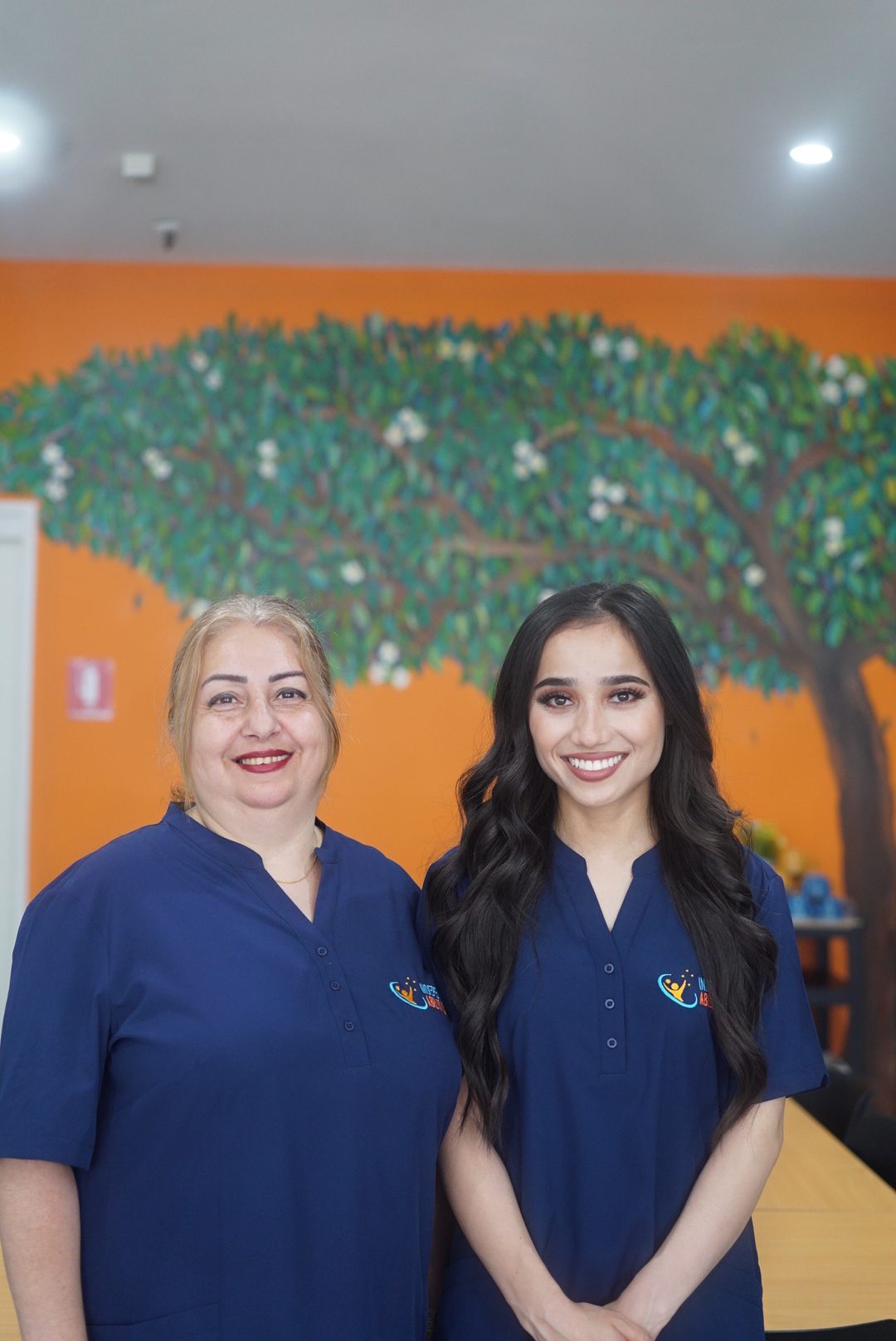NDIS Support for Sensory Disabilities
Respectful, consistent and culturally aware support for people with vision, hearing, and sensory processing needs.
Supporting You at Home
Sensory disabilities affect how a person sees, hears or processes sensory information from the world around them. These differences can influence communication, mobility, safety, routines and social participation. With the right supports, many of these challenges can be reduced, helping you live with greater confidence and independence.
At Independent Ability Care, we provide thoughtful and tailored support for people with sensory disabilities across Melbourne, with an emphasis on communication, safety and continuity of care.
How sensory disabilities can affect daily life
Someone with a sensory disability may experience challenges with:
- Communication (spoken, written, visual or auditory)
- Navigating community environments
- Reading signs, menus or written information
- Hearing alarms, announcements or instructions
- Managing public transport
- Safety around roads or busy places
- Sensory overload in loud or bright environments
- Understanding non-verbal communication cues
- Neurological and degenerative conditions
These challenges often require consistent, calm and culturally sensitive support.

How We Support Participants With Sensory Disabilities
Our team supports you in a way that respects your communication needs and sensory profile.
Daily living and personal routines
- Morning and evening support
- Assistance navigating the home safely
- Help with meal preparation and reading instructions
- Support with written or visual information
- Household tasks
Community access and appointments
- Navigating public spaces
- Supporting Auslan users
- Assistance with reading signs, forms or written materials
- Supporting sensory-friendly outings
- Attending therapy or medical appointments
- Learning routes (with O&M input where relevant)
Communication support
Depending on your needs, we adapt communication using:
- Clear, slow and consistent speech
- Visual cues or gestures
- Plain-language explanations
- Support with alternative communication systems
- Low-sensory communication
- Cultural and language-sensitive communication
Sensory-aware support
- Reducing sensory overload
- Structured, predictable routines
- Calm transitions
- Adapting environments and activities
- Supporting self-regulation strategies
Consistent sensory disabilities workers who understand your needs
We prioritise continuity so you don’t have to constantly adjust to new people, especially important for sensory and communication needs.
Culturally aware and bilingual team
We support participants and families who communicate in: Dari, Hazaragi, Hindi, Urdu, Tagalog and Farsi. This makes accessing services easier, particularly when discussing communication preferences, cultural norms and comfort levels. Read More
How the NDIS supports people with sensory disabilities
The NDIS funds supports that help with communication, mobility, independence and access to the community.
Core Supports
Everyday support such as:
- Personal care
- Community access
- Help with routines
- Communication support
- Supported transport
- Safety and mobility assistance
Capacity Building Supports
Supports that build skills over time, including:
- Occupational therapy
- Orientation & mobility (O&M) training
- Auslan tuition (for participants and families)
- Audiology supports
- Low-vision training
- Specialist behavioural or sensory regulation supports
- Support Coordination
Assistive Technology/Equipment
Depending on your needs, this may include:
- White canes, mobility aids and tactile markers
- Hearing aids or assistive listening devices
- Augmentative and Alternative Communication (AAC) devices
- Low-vision technology
- Screen readers and accessibility software
- Alerting systems
- Sensory regulation tools
Some items can be purchased directly (low-cost AT), while others require assessments and NDIS approval.
Home Modifications
To improve safety and accessibility, such as:
- Improved lighting
- Tactile flooring
- Safety adjustments
- Sensory-friendly spaces
- Reorganised layouts for clearer navigation
Early Intervention
Relevant for children with hearing loss, vision impairment or sensory processing differences.
Supports may include:
- Speech therapy
- Early childhood intervention
- Sensory regulation programs
- Early communication supports
- Parent training Read Less

Making Tasks Easier to Manage

Develop new skills and learn to be.
independent as you engage in your
day to day activity.

Trust that you will receive holistic care
as we care for your physical and
mental wellbeing.

Get assistance with daily life NDIS access
to multiple services so that you can spend
more of your time doing what you love.

You are always in safe hands with our standardised protocols & professionally
trained staff.

What Happens When You Contact Us
We keep the process simple and comfortable:
- Initial conversation: We take the time to understand your needs, culture, language, supports and preferences.
- Meeting or home visit: You meet someone who will get to know you properly and help plan your supports.
- Worker matching: We match you with staff who suit your personality, routines and goals.
- Supports begin: Start with a schedule that feels right for you, with consistent staff and clear communication.
- Ongoing support: We adjust as your needs change and stay in regular contact.
If you’d like to discuss NDIS support for sensory disabilities, we’re here to help. We’ll take the time to understand what you need, no pressure and no rushed decisions.
Our Promise to You

Choice and Control
“Your Choice of Care.” At IAC, you manage all your supports. We are flexible in providing care quality and understand the importance of your selection and management of support delivery.

Participant Focus
“Focus on what the participant wants, and we deliver” We understand participant’s focus and our job is to focus on what the participant wants and support them with the best possible outcome.

Growth
“Accept the pace of your journey.” Everyone has their own journey and their own way of reaching their goals, we are here to go through this journey with you and support your growth.

Diversity
‘‘We are all the same.’’ At IAC, we have enthusiastic staff from different cultures who are proud of what they do. We have created an inclusive environment that promotes equality for all stakeholders and staff.
Our participants and their families testimonials

Hear directly from one of our incredible participants as they share their journey, challenges, and the positive impact that Independent Ability Care has made in their life.
At IAC, we believe every person deserves the opportunity to live with dignity, independence, and choice.
In this video, you’ll hear about:
- The participant’s lived experience
- Their NDIS journey and the supports they receive
- How IAC’s team has helped build confidence, and independence
- What quality, person-centred care truly feels like
Participants Reviews

Thank you IAC! You guys have been very helpful and I appreciate the services I receive from you guys👌

Very happy with the services received

Independent Ability Care is exceptional in their services. Having experienced a poor understanding and service from my previous provider, I can confidently say that Independent Ability Care is a company that truly cares.
Why Choose Us?
Our values are at the centre of everything we do
for our participants, their families and the community.

Clear Communication
We as NDIS service providers value the importance of a clear and open communication with our participant, their family & our staff within the wider community. We hear you.
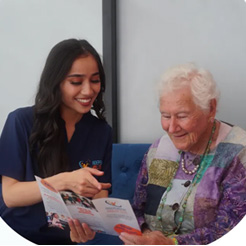
Person-Centered Care
Our dedicated and passionate NDIS service providers and staff have one common goal when working with you: To provide you the dedicated care you deserve in a respectful and empowering manner at all times.

Dedication
Our devoted and passionate NDIS registered providers of IAC have one common goal: To provide you with the dedicated care you deserve in a respectful and empowering manner at all times.
Frequently Asked Questions
Do you offer services in languages other than English?
Yes we do! We speak English, Dari, Persian and Hindi.
How does your pricing work, and does it align with the NDIS Price Guide?
We need to understand what care you need and your goals before recommending our services. Once we have a complete understanding, we ensure that the recommended services are affordable within your NDIS plan budget and the NDIS price guide; that there are no hidden costs.
How are your staff trained, and can I choose who works with me?
We ensure that our staff have the qualifications for the job and they receive regular trainings so as to ensure continuous improvement of our services. As long as the support coordinator possess the right qualifications to provide you the care you need (depending on the service required), we are happy for you to make the choice.
Our Support Workers qualifications include:
- Certificate III in Individual Support (Disability, Aged Care, or Community)
- Certificate IV in Disability
- Certificate III or IV in Community Services
- Certificate IV in Mental Health (where relevant)
- First Aid & CPR certification
- NDIS Worker Orientation Module (mandatory for all workers)
- Manual Handling and Medication Assistance training
- Positive Behaviour Support (PBS) training (where required)
- Infection Control training
What is your process for feedback, complaints, and continuous improvement?
We continually review the feedback and complains that we get so that we can improve the services we provide. If there is a complaint, we will keep you informed throughout the complaints process and inform you of the outcome and the reason behind it. If you’d like to submit a feedback or complaint, submit this form and select “feedback”.
Is a sensory disability automatically eligible for the NDIS?
Not automatically. The NDIS looks at functional impact, how your sensory disability affects daily life, safety, communication and independence.
Can sensory processing challenges alone qualify for the NDIS?
Yes, in some cases, especially when they significantly affect daily functioning, behaviour, communication or community participation. Functional evidence is important.
What reports do I need for NDIS eligibility?
Helpful evidence includes:
- Audiology reports
- Ophthalmology or optometry reports
- OT functional assessments
- Orientation & mobility specialist assessments
- Early childhood or behavioural assessments
- Communication assessments
Does the NDIS fund Auslan training?
Yes, for both participants and family members.
This supports communication, learning and participation.
Does the NDIS fund low-vision aids or mobility tools?
Yes, common items include magnifiers, white canes, electronic reading aids, tactile markers and software. Some require assessments, especially mid/high-cost items.
Can I choose workers who understand my communication needs?
Yes. You have full choice and control. You can request workers who:
- Communicate calmly and clearly
- Are sensitive to sensory needs
- Use visual or non-verbal communication
- Understand your cultural or language background
Does the NDIS fund sensory rooms or sensory equipment?
Sometimes, when the equipment is directly linked to functional needs (e.g: regulation or communication) and is clinically justified by a therapist.
How does orientation and mobility (O&M) training work under the NDIS?
O&M specialists help with:
- Navigating safely
- Learning routes
- Using mobility aids
- Improving confidence outdoors
The NDIS usually funds O&M under Capacity Building.
Ready to discover the secret to stress-free NDIS support?
Get Started – Book a Callback!
We understand every participant has different communication needs. If you prefer email or another contact method, simply let us know in the comments and our team will follow your preference.
Other Services

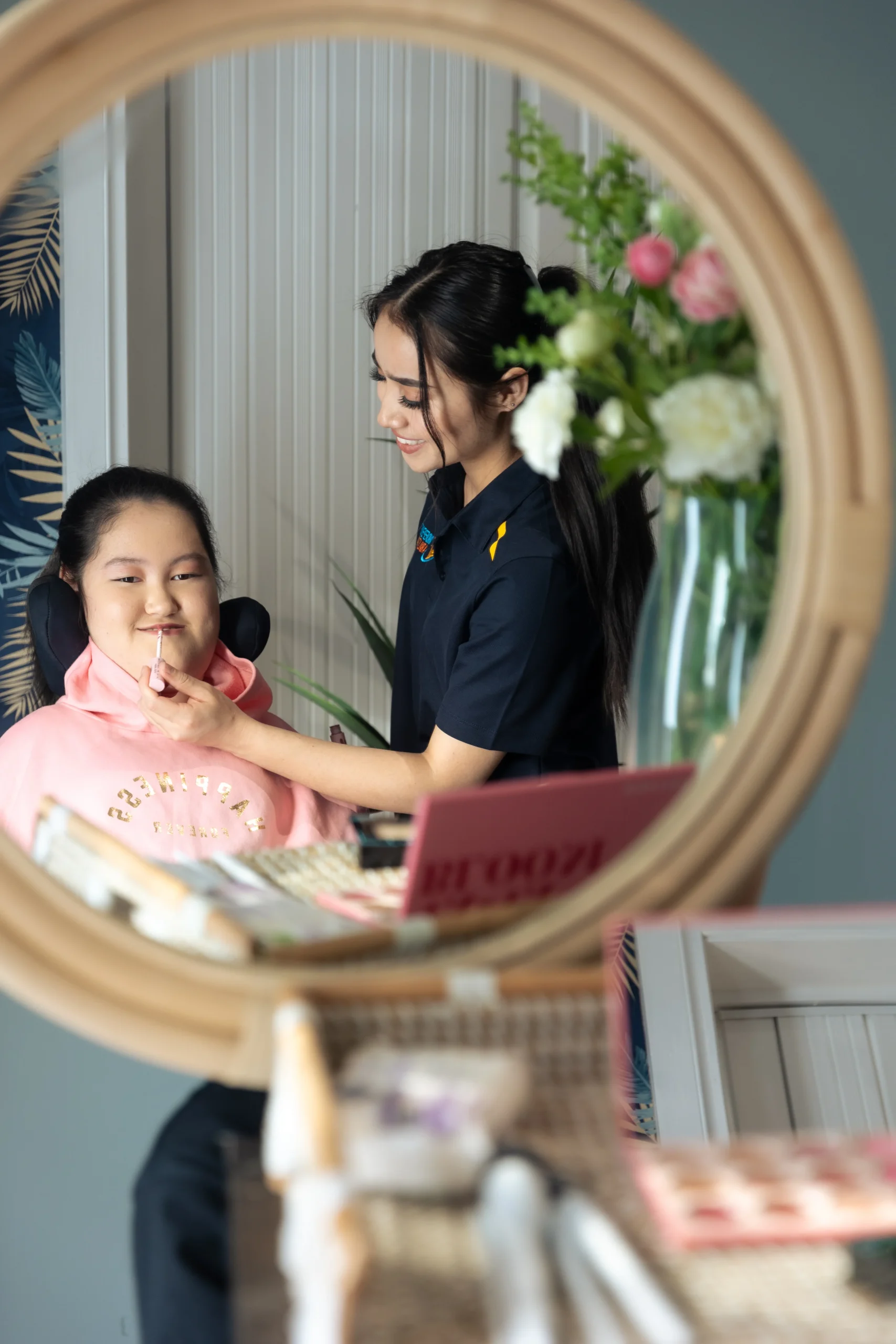

NDIS Support for Intellectual Disabilities
Develop core life skills to easily achieve your goals.



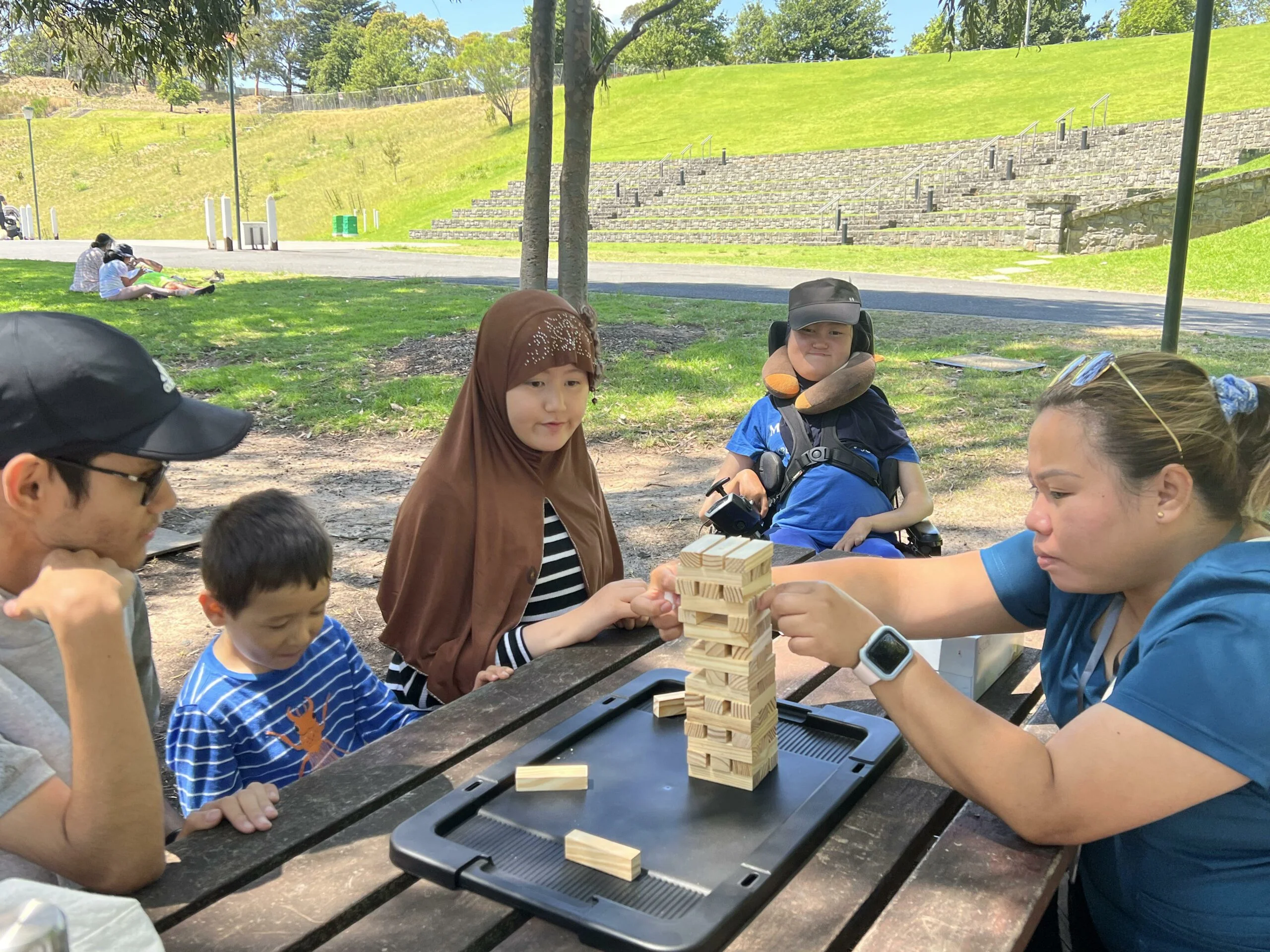
NDIS Social and Community Participation
Choose the activity you want to be involved in and we'll make it happen.

NDIS Specialist Support Coordination
Connect with the community and maximise your NDIS plan.
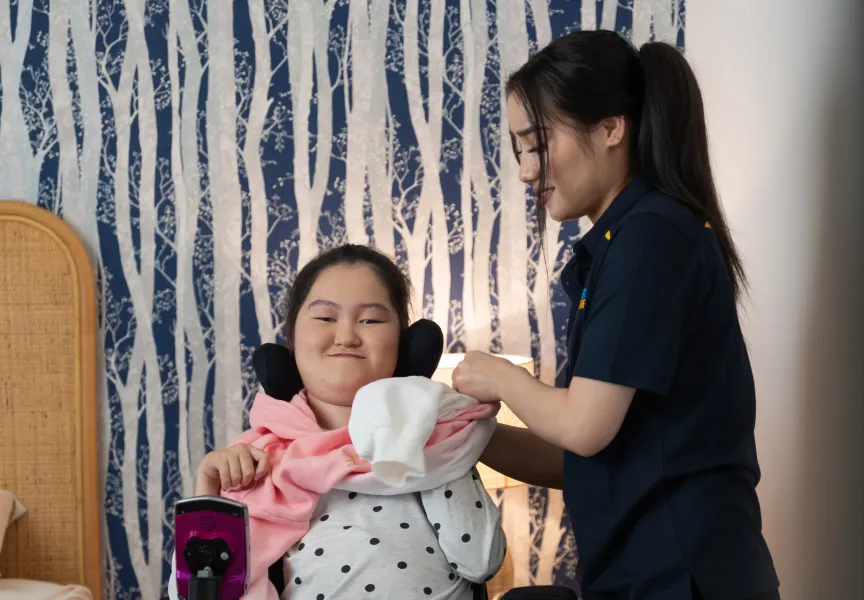

NDIS Transport Providers
Learn how to access your community and pursue greater opportunities.

NDIS Home Maintenance
Offering the best home maintenance and cleaning service in Melbourne.

